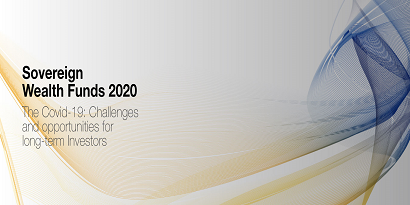Spain among the top ten countries receiving sovereign funds

According to the report by ICEX-Invest in Spain and IE University, between January 2019 and September 2020, the country was the recipient of twelve transactions by nine sovereign funds, worth about 1.3 billion euros
Madrid, 3 March 2021. Sovereign wealth funds were most active in the sectors of technology – with 25% of transactions –, services (18%) and life sciences (17.6%), according to the latest Sovereign Funds Report 2020 prepared by IE University's Center for the Governance of Change, in collaboration with ICEX-Invest in Spain. The report analyses 165 transactions worth $43 billion. The US, UAE, China, India and Mexico were the destinations for the lion's share of sovereign investment in 2020.
The report was presented at an online event inaugurated by Xiana Méndez, Secretary of State for Trade, and Susana Malcorra, dean of the IE School of Global and Public Affairs. Javier Capapé, director of Sovereign Wealth Research at the IE Center for the Governance of Change, described the key points of the publication, which analyses the trends in these large international investors in 2020.
"Sovereign wealth funds are a major investor in Spain, not only due to their volume, but because their presence is stable in the long term and is closely aligned with Spain's objectives of productive transformation towards a more sustainable digital economy", said Xiana Mendez, Secretary of State for Trade, during her intervention. "This report also reveals how COVID-19 has affected the activities of sovereign wealth funds around the world, and points out that, despite this situation, Spain maintains its capacity to attract investment and ranks among the top 10 recipients of sovereign fund investment".
According to the report, Spain was the destination for 12 transactions by nine different sovereign wealth funds between January 2019 and September 2020, worth close to 1.3 billion euros, practically on a par with the figures from the previous year's report, in a year marked by a drop in global foreign direct investment of over 42%.
The funds invested in Spain and in Spanish companies went to a variety of sectors, including real estate, where the highlight was the acquisition of a luxury hotel by GIC, Singapore's active fund. It is also worth noting the entry of sovereign funds into the equity of industrial companies, companies manufacturing capital goods for the automotive industry and the wind power sector; together with continued interest in food and infrastructures.
At least nine different sovereign wealth funds have invested in Spain in this period. Major funds such as the aforementioned GIC of Singapore and those of Qatar and the United Arab Emirates (Mubadala) maintain their interest. Another notable player this year is Sopef (the co-investment sovereign fund established by COFIDES and the Oman Investment Authority), which has made its first five investments, and expects to make between four and six more transactions in the coming months.
Main investment sectors
At the international level, the authors note the recovery of the sovereign funds' investment in infrastructures linked to natural gas, transport and telecommunications, following a detailed analysis of the 42 industries where they invested. The commitment to real estate is also maintained, with strong investment in the industrial segment (warehouses, logistics centres and industrial warehouses), together with a countercyclical investment in offices and hotels, both pre- and post-pandemic, which have proven valuable to long-term investors.
The technology segment includes investments in sustainable food companies, the search for alternative energy sources, the education sector (especially distance education) and fintech companies (mainly payments and neobanks), while investments in mobility solutions (highly invested in recent years) have lost weight. Sovereign funds prioritised their participation in biotechnology companies, many of which are still little known, while others have today become household names thanks to their development of vaccines against the virus such as BioNTech, CureVac or the project behind the Russian vaccine, Sputnik V.
As in the previous year, the report notes that the changes in sovereign investment are combined with their continuity. Exceptional stability can be seen in regard to geographic destinations, with more than ten investments in the United States, China, the United Kingdom and India in terms of the number of transactions.
A look at the investments from the point of view of their value, however, reveals two less common countries at the top of the table: the United Arab Emirates, for the mega-deal closed by GIC with its partners for the management of ADNOC pipelines; and Mexico, with the joint acquisition by GIC and Abertis of a controlling stake in one of the country's largest highway operators.
Sovereign wealth funds opt for venture capital
Venture capital investments remain significant when measured by the number of transactions, but due to the pandemic the data for 2020 are very revealing. Only six funds managed to maintain their presence in venture capital investment rounds in this challenging year. This reduced number is in contrast with the ten funds that participated in funding rounds in 2019, or the 14 that did so in 2018. Only funds with their own teams and a structured strategy showed this strength. Once again this year the Singapore funds (Temasek and GIC), closely followed by the Emirati fund Mubadala, whose strategy was described in the previous report, are beginning to deliver results.




